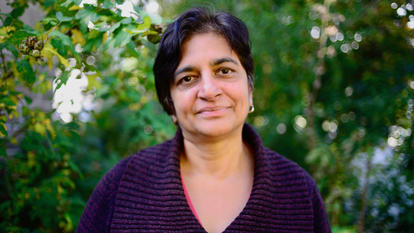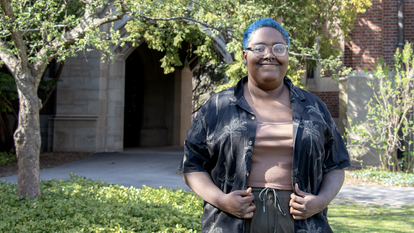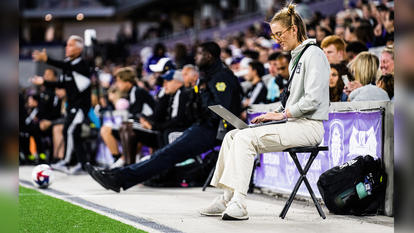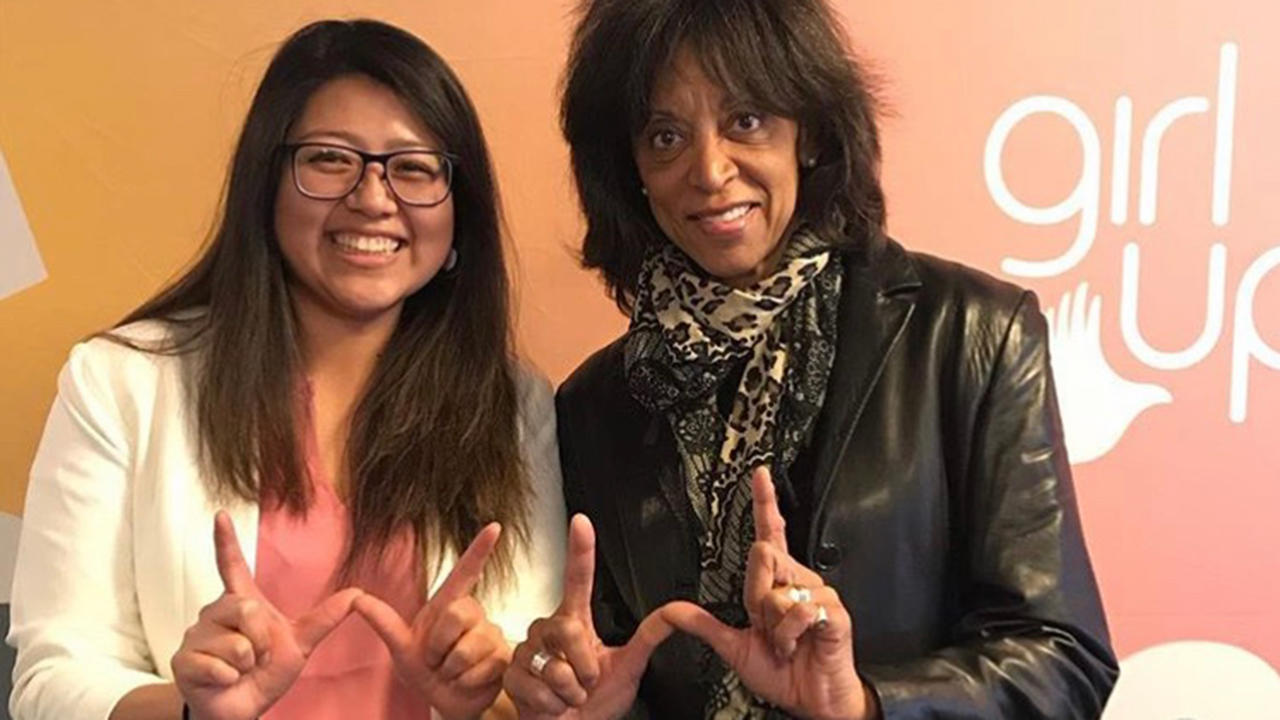
Girl Up Shows Young Women How to Be a Force for Gender Equality and Social Change
In the summer of 2015, Rocio Ortega ’16 was a Wellesley in Washington intern. She and Charlotte Hayes ’75, then working at the U.S. Department of Labor, met for dinner, where Ortega surprised Hayes with her plans for the following evening. “She told me she was introducing the first lady [Michelle Obama] the next night at the annual Girl Up summit,” Hayes recalled. “I said, ‘Rocio, you just got to Washington. How is that possible?’”
Ortega told Hayes she had been involved with Girl Up for a number of years, serving as a teen advisor in high school and starting a chapter when she arrived at Wellesley. The UN Foundation established Girl Up in 2010 to support adolescent girls throughout the world; there are now 3,500 Girl Up clubs in nearly 120 countries and all 50 states.
“I went to the summit the next year, and 500 girls from all over the globe were doing business to change the world,” Hayes said. She vowed to learn more and get involved.
Under normal circumstances, this year’s Girl Up Leadership Summit, We Need to Talk: Connecting the Global Movement for Gender Equality, would have brought 500 participants to Washington to discuss allyship, climate change, empowerment, fighting gender-based violence, and more. In the era of COVID-19, the conference went online from July 13 to 15, allowing 38,000 attendees from all over the world to join the conversation.
The Wellesley connection to the virtual event was strong: Hayes is now an advisory board member for Girl Up, and Ortega is an associate with the UN Foundation.Hayes reached out to Mira Patel ’05, a former aide to Secretary Hillary Rodham Clinton ’69, to help secure Clinton as one of the speakers for this year’s event. Jailene Lemus ’21, a current participant in the Wellesley in Washington program, is an intern with Girl Up, which is how she got involved with the summit. She assisted with registration, plenary programming, and speaker invitations, and she created detailed reports about the audience that attended the summit.
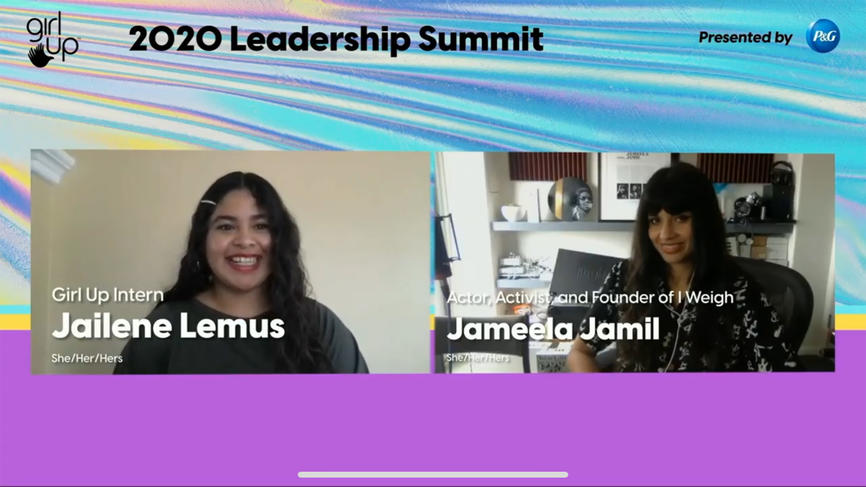
Ortega said the summit received 125,000 views across platforms. “If we can spread the message of gender equality to different corners of the world through a virtual Leadership Summit, we will do it to our full potential,” Ortega said.
Participants heard from Clinton and other world leaders, including Michelle Obama and Meghan Markle, Duchess of Sussex, who shared messages of encouragement and support with the audience during the livestream. During each presentation, a constant conversation took place among attendees in the YouTube channel’s comment box.
A highlight for Lemus was the opportunity to interview the actress and activist Jameela Jamil for a session called Building the Future. “I have been a fan of Jameela’s since watching her in the NBC show The Good Place, so being able to virtually meet with her for a discussion on body positivity and leadership was phenomenal,” Lemus said.
Ortega’s favorite session was called The Future is Now, with a panel that included youth activists Edna Chavez and Yu Liang and was moderated by Ortega’s younger sister Ivonne, a Girl Up club leader. “Hearing a younger generation speak on what gender equality means to them like immigration rights, Black Lives Matter, education rights, and ending period poverty, reminded me of something that I learned at Wellesley, and that is Non Ministrari sed Ministrare,” she said.
Hayes said Wellesley and the Girl Up organization work well together: “Wellesley is Girl Up. Same values, same women who believe in themselves and believe in other women and make the world a better place.”
“Wellesley is Girl Up. Same values, same women who believe in themselves and believe in other women and make the world a better place.”
Charlotte Hayes ’75
While having a virtual summit enabled more attendees to join, one challenge of the new format was creating programming for different time zones and recreating opportunities for attendees to bond—something that happens a bit more easily in person. “We had multiple live chats, breakout rooms, and WhatsApp groups generated by the attendees themselves,” Ortega said. “It was challenging, but I wouldn’t change the experience because it meant it was time to try something new, be innovative and creative.”
At the summit, Ortega had the opportunity to announce the launch of the Girl Up Scholarship Fund. “As a student who went to Wellesley on full financial aid, and a first-generation Mexican-American college student, I know how important scholarships are to continue your education,” she said. “It’s something I always wanted to do at Girl Up, and now I’m happy to work with my Girl Up team to provide financial assistance to youth leaders who want to advance their career in gender equality.”
Now that the planning and scheduling are behind them and the event is complete, Lemus said her greatest hope is that all attendees “left the summit with the knowledge that they have the power and the skills to implement positive change locally, nationally, and globally.”

